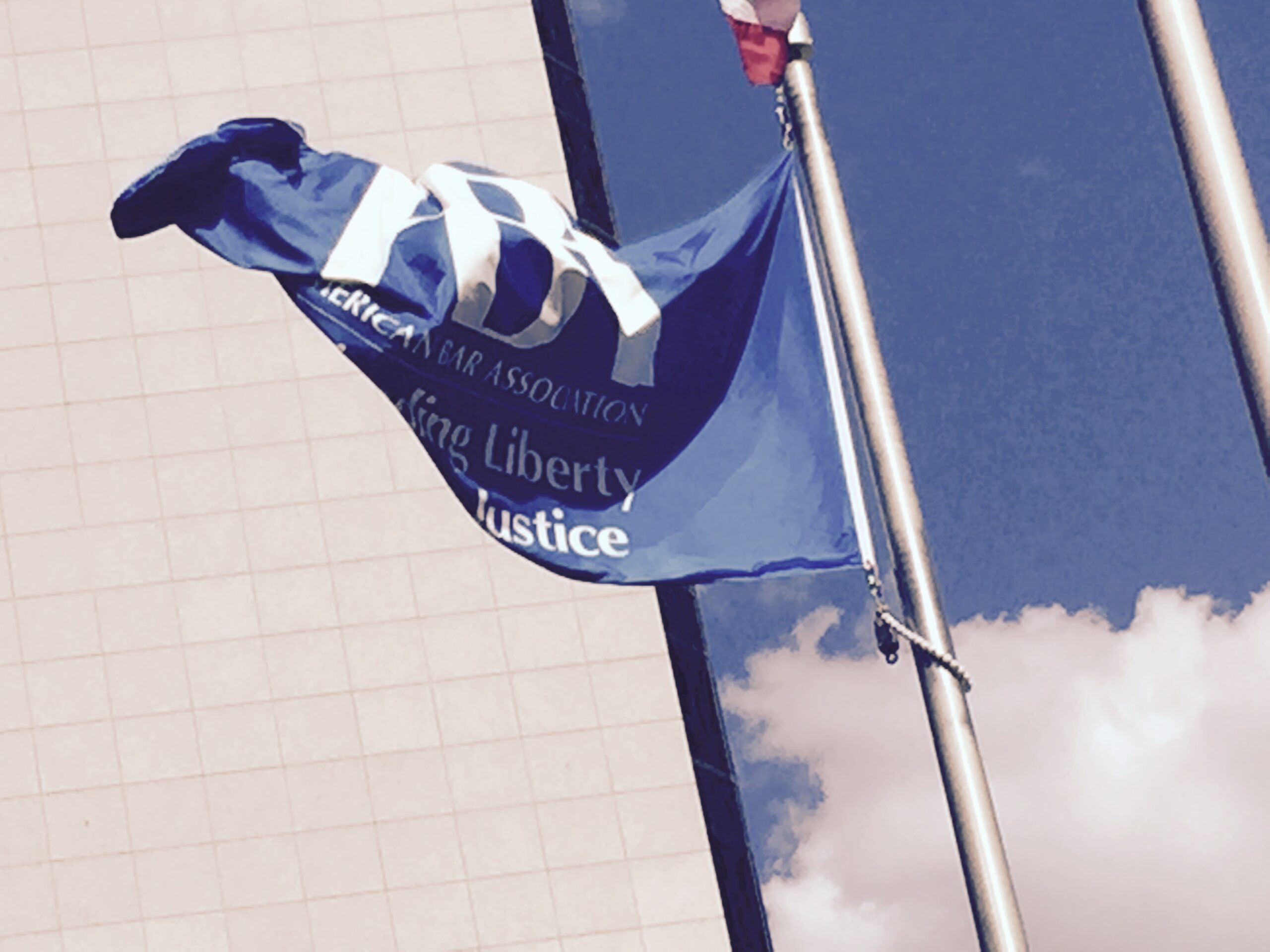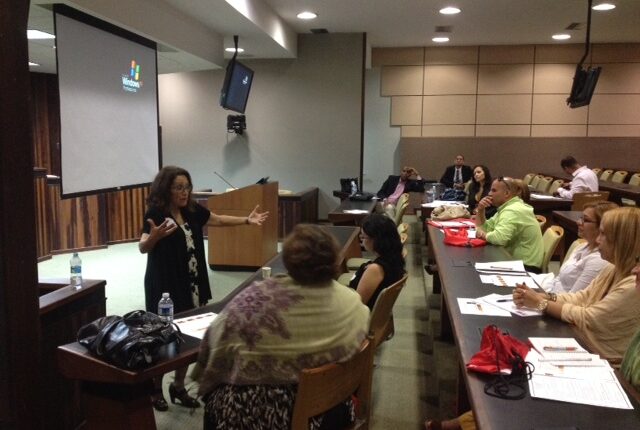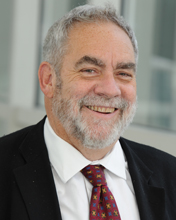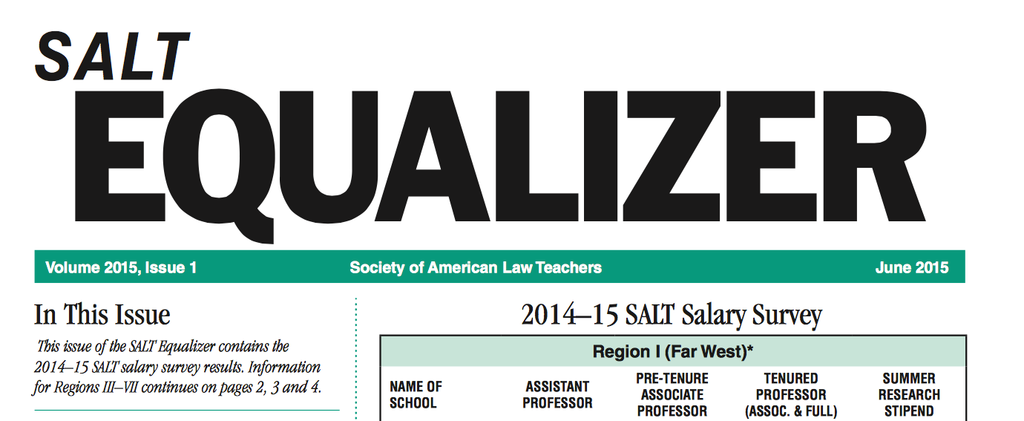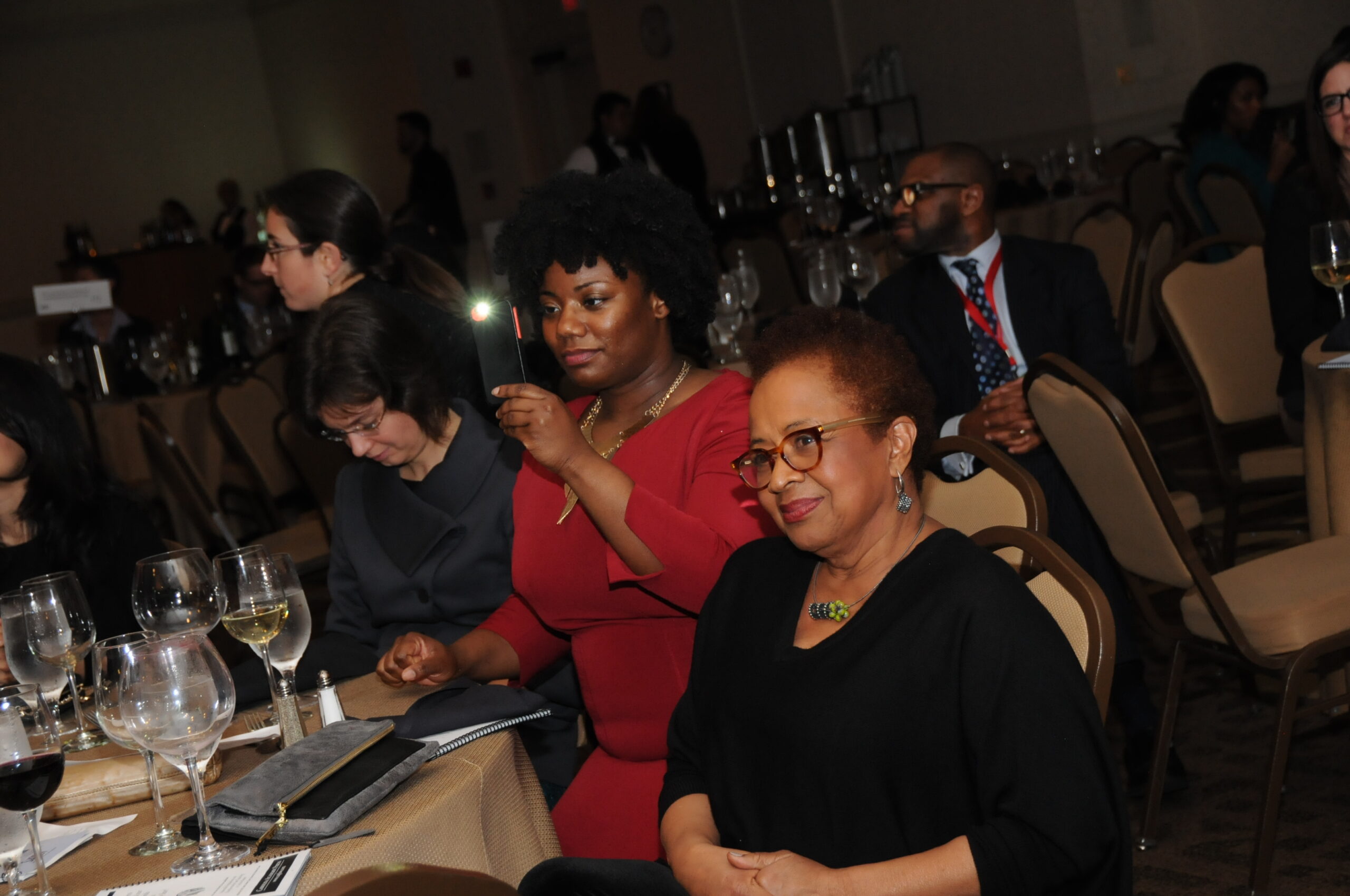 |
Professor Sara Rankin,
Seattle University School of Law
I am deeply honored and humbled to have been nominated to serve as a Co-President of SALT for 2016-18. I can think of no other entity that has bridged and supported my personal and professional instincts as well as SALT. Through our incredible SALT members, I have found inspiration, challenge, community, growth, and friendship. SALT’s mission of inclusion and excellence in legal education fuel my scholarship, my activism, my teaching, and my passion for lawyering in the public interest. In my past few years on the Board, I have been fortunate to serve as Chair and Co-Chair for the last two SALT Teaching Conferences, Chair of the Annual Dinner, and as a member of the Legal Education Committee. I have also been privileged to serve on SALT’s Executive Committee. Although I did not know it at the time, I was SALT-y before I even enrolled in law school. Before my legal career, I earned a M.Ed. from the Harvard Graduate School of Education, where I focused on education reform. As a practicing lawyer, I devoted significant time to pro bono work for indigent populations and developed training programs for young lawyers who also wished to serve these communities. At the Seattle University School of Law, I founded and currently direct the Homeless Rights Advocacy Project (HRAP), which connects students, law faculty, lawyers, community organizations, and people experiencing homelessness to advance the rights of visibly poor people. My scholarship also supports SALT’s mission: I research and write on the social and political aspects of legal education reform, homeless civil rights, and social movements. This nomination to serve as SALT Co-President is a tremendous honor and I look forward to leading, learning, and making a difference with all of you as colleagues and friends. |
|
|
 |
Professor Denise Roy,
William Mitchell College of Law
I am honored to have been nominated to serve, along with Sara Rankin, as a Co-President of SALT. I began teaching at William Mitchell College of Law in January 1992, and one of my very first experiences as a law teacher was to attend the annual SALT dinner. Always nurturing and inspiring, the gathering was deeply moving that year. Professor Mary Jo Frug, a courageous and beloved feminist scholar at New England School of Law, had been murdered the April before and was honored and remembered at the dinner. The tribute was personal and raw. In grief, the confluence of head and heart that makes SALT so special particularly evident. I became a member then and have been one ever since. The teaching conferences have been invaluable to me as a new and more seasoned teacher. A favorite SALT moment was the San Francisco march of law professors clad in academic robes in protest of Prop 209, California’s anti-affirmative-action initiative. I joined the Board of Governors in 2007 to help modernize and organize SALT’s budget and other financial practices as Chair of the Board’s Budget Committee. I remember the days when Stuart Filler organized every annual dinner and financial “records” were stored in shoe boxes and was lucky to work with SALT through the Open Society grant years, when we enjoyed the luxury of having Hazel Weiser as Executive Director. I’m excited to help lead SALT as we reclaim our identity as an all-volunteer organization, as we continue the struggle for justice, excellence and relevance in legal education, and as we redouble our efforts to fight law’s injustice. |
|
|
|
|
Nominees to the Board of Governors
|
|
 |
| Anna Carpenter, Assistant Clinical Professor of Law, University of Tulsa
In October of 2014, I attended my first SALT Conference in Las Vegas, Nevada. Within a few hours of walking in the door, I recognized something was different. Simply put, I thought: “These are my people.” I met person after person who was clearly committed to social justice, to diversity and equality, and to effective teaching—commitments I share, both personally and professionally.As a newer law teacher, I have already benefited from SALT’s work. From the comparative information in SALT’s salary survey, to the critical analysis of proposed ABA standards, to engaging and productive conferences and policy conversations, SALT is a vital and progressive voice in legal education. I would be honored to be a small part of that voice.Given what I know about SALT’s work and the SALT community, I seek a leadership role in order to give back to the organization and support progressive values in legal education. I am also interested in the opportunity to learn from other members of the SALT community. Involvement in the board is a chance to serve, but it is also a chance to sharpen my own thinking about the most challenging issues facing legal education today. It is a chance to learn more about legal education, legal academia, and law teaching. Through involvement in SALT, I hope to become a more responsible, responsive, and thoughtful member of our community. ![]() |
|
|
 |
| Matthew Charity, Professor of Law, Western New England University
I have been teaching since 2007, and have found support in the SALT community throughout my legal teaching career. Some of the support has been personal: advice at a pivotal moment or reassurance during a stressful time. Other support has been structural: letters drafted by the organization supporting and expanding tenure and academic freedom; writings on the SALT blog that expand on ideas I’m formulating for the classroom on issues of human rights or racial and economic justice; and many other mechanisms that give me confidence in my teaching, scholarship, and interactions with legal discourse in general.Most of my students are not surprised to discuss questions of fundamental justice when they take courses in international criminal law and human rights; but with the support of SALT members, I have found it easier to phrase questions from a perspective considering identity and rights in courses such as contracts, as well.Having served on the planning committee of the Faculty Development Workshop, and moderated a number of sessions there, I have also seen how SALT creates a zone of comfort for others entering, or thinking about entering, the academy. Programming such as the Faculty Development Workshop gives me confidence in the direction of the legal academy, and the role of progressive voices moving forward.I am a proud member of SALT, and would be honored to serve on the Board of Governors. |
|
|
 |
| Justin Hansford, Assistant Professor, St. Louis University
I am writing this statement to express my enthusiastic interest in serving as a member the SALT Board of Governors for a three year term officially beginning on January 1, 2016. Being named to this position would help me to further bring into alignment my deeply held professional and personal values.Many leaders of the scholar activist community have shared with me the long legacy of SALT support for law professors active in work for social change. I plan to be a scholar-activist for as long as I breathe. I would genuinely cherish the chance to become a more engaged part of that legacy.Even more than the legacy of the past, my interest grows primarily out of a great sense of gratitude for SALT’s present work and the desire to promote SALT values in the future. In the article “When Activism is Worth the Risk” in the July 2015 edition of the Chronicle of Higher Education, I discussed my experiences in Ferguson. As the article noted, my commitment to the #BlackLivesMatter movement has placed a target on my back in some circles. During this tumultuous time, members and especially Board Members of SALT have done more than any other legal organization to express the willingness to provide professional support for me. As a result, the SALT bumper sticker is the only one above the door on my office to this day.Life provides few opportunities to truly “pay it forward,” but this is one. |
|
|
 |
| Donna H. Lee, Professor of Law, CUNY
My interest in serving on the Society of American Law Teachers (SALT) board stems from my commitment to the values that SALT strives to advance – social justice, diversity, and teaching excellence. Throughout my legal career, I have been fortunate to do public interest work in a variety of contexts, including the Law Reform Unit of the Legal Aid Society in New York, the ACLU National Prison Project, and most recently teaching in the clinical program at CUNY School of Law. Since 2012, I have embraced CUNY’s dual mission of training social justice lawyers and diversifying the legal profession. Working with SALT would be a natural extension of and synergistic complement to my work at CUNY.Similarly, serving on the board of the Clinical Legal Education Association (CLEA) has already afforded me the opportunity to collaborate with SALT colleagues on ABA advocacy regarding proposed changes to law school accreditation standards. I would look forward to building on this work, and also welcome the challenge of working on and learning about other issues related to empowering underserved communities.I believe that I will have the time necessary to serve as an active SALT board member since I will be rolling off the CLEA board at the end of 2015. I would be honored to join the community of SALT board members and to delve more deeply into the various social justice, diversity, and legal education issues that are central to SALT’s mission. |
|
|
 |
| Beth Lyon, Clinical Professor of Law, Cornell (returning)
Thank you very much for the opportunity to seek reelection to the Board of Governors. I would like to serve a third term on the SALT Board of Governors to continue assisting the organization with its human rights advocacy. During my first term on the SALT Board of Governors, I was most active with three projects for the Human Rights Committee: co-authoring a SALT Shadow Report to the United Nations Committee on Racial Discrimination regarding attacks on diversity U.S. legal education; co-authoring and publicizing a report to the then-new Obama Administration on regulatory immigration fixes; and co-organizing SALT’s first CLE training on representing unaccompanied children, through a partnership with Kids in Need of Defense and hosted by NYU Law. In my second term my primary projects were: 1) contributing to a SALT consumer guide to legal education for social-change-conscious applicants; 2) working with the Human Rights Committee to file a second Shadow Report to the CERD; and 3) supporting Committee member initiatives such as filing an application for SALT’s Consultative Status to the UN and generating statement on racial violence in the U.S. In my third term, if there is interest, I intend to propose and coordinate development of a SALT manual on supporting foreign law professors whose academic freedom is threatened. |
|
|
 |
| Zinelle October, Esq., American Constitution Society (Affiliate Member of the Board)
I have worked at the American Constitution Society for Law and Policy (ACS) for almost five years. I started at ACS leading our student chapters team. It became really clear to me in that role that SALT’s people are ACS’s people. Not only are our missions compatible, but many of the SALT members are ACS faculty advisors, speakers and writers.I have attended several SALT events, including the annual SALT dinner. SALT’s work is really impressive and essential. I want to join the board to help shape the future of the organization. I believe in SALT’s mission and want to help achieve it.My work at ACS will benefit SALT because I work with law students, law professors and other legal professionals across the country. I can help plug students and junior attorneys who express an interest in teaching into the SALT network. And I already work with our law professors to help identify interested students. A board position with SALT would benefit ACS because of how aligned our goals are. Together, we can work to advance social justice. |
|
|
 |
| Hari Osofsky, Professor of Law, University of Minnesota (returning)
I am honored to be nominated to another term on the SALT Board of Governors. I became a professor with the goal of my writing, teaching, and advocacy helping to leave the world a little better than I found it. During the more than a decade I have spent thus far in academia, I have been so grateful to have SALT as a home. Being part of a community of law professors committed to advancing social justice goals inside the academy and beyond has been a core part of what has kept me going in my most difficult moments.I have benefitted greatly from the junior faculty workshops co-sponsored by SALT, as well as from the much-needed encouragement by SALT members that our collective efforts can help to bring greater social justice over time. It has been exciting to try to give back to that community through my work on mentoring through our new teacher’s pipeline committee and helping to establish the SALTLaw Blog. In my prior new teacher’s pipeline committee leadership, I have mentored numerous people who were considering the academic market, on the academic market, or pre-tenure; linked people to mentors; and helped to develop our programs for people trying to break into academia further. I also organized a “breaking in” program here in the Twin Cities in collaboration with colleagues from all four area law schools. If reelected to the SALT Board, I am committed to helping our mentoring program to grow and develop further. |
|
|
|
|



